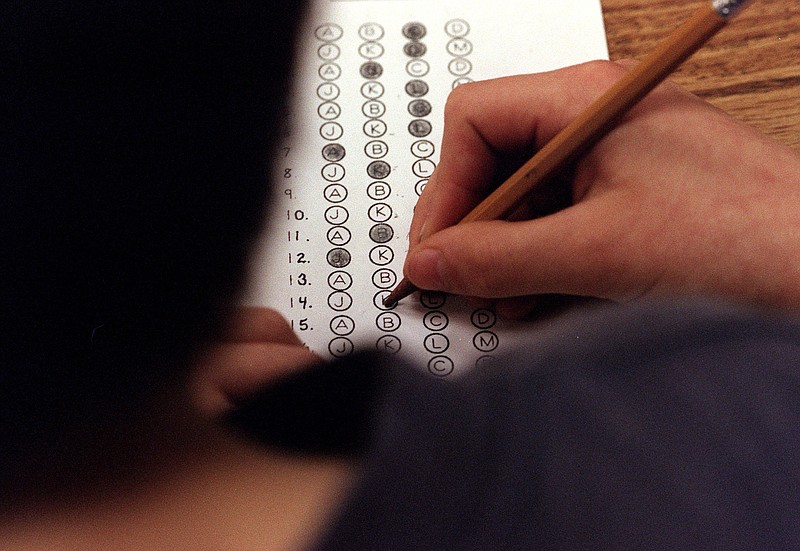Since Tennessee educators have experienced only one year in the five-year history of its TNReady assessment tests in which the process went as scheduled, it's important all students are tested - and tested in person - this spring.
It's doubly important because many students have been remotely learning since the coronavirus pandemic hit last spring, and the vast majority of education experts say remote learning has not been as effective as learning face to face in a classroom setting.
The tests were canceled in light of the virus crisis last spring, and some states want to cancel comprehensive student testing again this year.
It's critical that Tennessee not do that both because no tests were taken last year and because of the state's rocky testing history the past five years.
* In the 2015-2016 school year, because of printing problems experienced by vendor Measurement Inc. and glitches with the online platform, testing for students in grades 3-8 - in the initial year of TNReady tests - was canceled, and no scores from students in grades K-8 were counted.
* In 2016-2017, under new vendor Questar, the tests were taken by paper and pencil instead of on computers, some 10,000 assessments were scored incorrectly and the results did not arrive as expected before the end of the school year.
* In 2017-2018, tests were taken on both computer and on paper, but some scores were deemed to have been affected by technology issues, a severed fiber optic cable and other problems. The state legislature determined teachers would not be negatively affected by the year's scores.
* In 2018-2019, the assessment process ran smoothly. Nevertheless, the contract with vendor Questar was not renewed, and a new one was signed with Pearson Education.
* In 2019-2020, tests by Pearson were to be given solely by paper and pencil, then were to be all by computer for the 2020-2021 year. But most learning went remote by mid-March 2020, and the annual tests were canceled.
This year, with students more than halfway through their third of four nine-week periods, about a fifth of students across Tennessee are still learning remotely, according to Chalkbeat, a nonprofit news site covering public education. The number learning remotely is much smaller in Hamilton County, where most students returned to face-to-face learning earlier this month.
The TNReady tests, if taken, will give teachers and administrators at best a picture of how remote learning affected students, what concepts were not grasped and what areas need more emphasis. At worst, it will give officials a new benchmark to which they can compare 2021-2022 scores when - we all hope - the school year will return to normal if virus vaccines have provided herd immunity.
Though signs are good that coronavirus cases, hospitalizations and deaths are all declining with the advent of vaccines, the danger is if there an increase in cases causing schools to close, it would throw off the testing schedule, which needs a number of consecutive days for completion.
The window set aside by state and local education officials for the tests is April 12-June 10, which offers well over a month and a half of time before they begin and the advent of warmer weather for people to be outside more, where the virus is less easily spread.
According to Chalkbeat, to offer even more social distancing during testing than in the typical classroom setting, the state has suggested staggered schedules and additional school venues in which the tests might be administered. Further, they said most districts have made plans to test current virtual learning students separately from those who have returned to classrooms.
While state scores will be important in determining what has been missed or in establishing a new baseline, the abnormality of the year caused state lawmakers to again direct that test results won't be used in teacher evaluations and that districts can exclude the scores from their state ratings. However, the latter tenet comes with a caveat. Districts only can exclude the scores as long as 80% of their students take the tests.
Experts disagree whether a certain threshold of students taking the test will make a difference in the data, but we believe that data is particularly important this year and specifically important because of the state's track record on TNReady.
With that in mind, we hope parents - especially those of students still learning remotely - will be understanding about the need for tests and will make every effort to assure their children are present. Comprehensive tests are not a magic bullet, but they do offer data that provides clues for the improvement in learning for all students, both the students taking the tests this year and those who will take them in the future.
